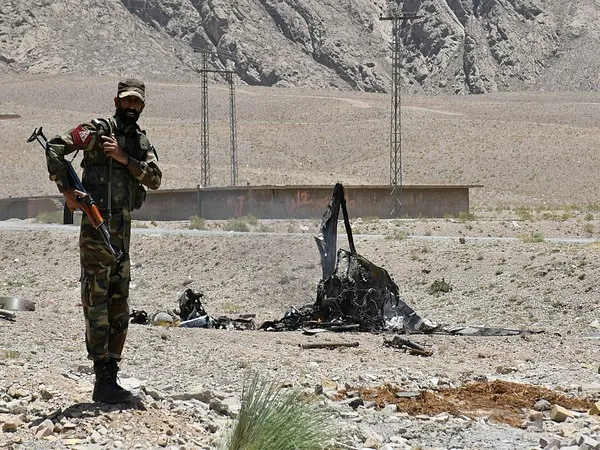Writing for the Afghan Diaspora publication, Hamid Pakteen recalled Operation Zarb-e-Azb, which shows the dubious role of the Pakistan Army in Afghanistan.
Pakistan Army launched Operation Zarb-e-Azb, an offensive targeting various militant groups in North Waziristan, an area in the Khyber Pakhtunkhwa province of Pakistan, in 2014 on the border between Pakistan and Afghanistan.
Even though the operation was considered a success by Pakistan, over a million people, mostly Pashtuns, lost their homes and were stranded as a result of the collateral damage caused by the fighting, Pakteen wrote.
The Pakistani government termed the rehabilitation of internally displaced persons (IDP) as a domestic matter and asked them to not seek any foreign help to address the socio-economic upheavals.
Notably, the USA and the United Arab Emirates announced USD 50 million in assistance.
The Pakistani government also announced an assistance of USD 80 million to all displaced families and said that rations and transportation expenses would also be provided where needed, he added.
However, not many people received aid from Pakistan due to the corruption in public distribution schemes and the misappropriation of funds.
Pakistani investigative committees found that funds for the construction of core infrastructure with Chinese cooperation and financing in the Belt and Road Initiative (BRI) were misappropriated.
As a result, an additional USD 22 million in aid for IDPs was requested but the present government was hesitant to allocate further funds.
The article said that the Pashtuns form the second largest ethnic group in Pakistan, and the largest group in neighboring Afghanistan, however, despite being over 15 per cent of the population, they lag behind economically.
The welfare of the Pashtuns has often been ignored by Pakistan. The displaced Pashtuns have suffered the most impact from the corruption and as a result, their relationship with the Pakistani authorities has turned sour.
The division of the Pashtuns between Pakistan and Afghanistan, and the relationship between Islamabad and Kabul have also contributed to their sour relations.
Tensions have escalated as Pakistan continues to host and support the hardline Islamist groups and tries to dominate Afghan affairs, Pakteen wrote.
Border regions have witnessed a rise in violence, insurgent movements, and brutal fighting due to the tense relationship between the two countries which has led to the destruction of property and wealth, displacement, and the lack of development.
Similar situations will continue to arise and the remote areas will become more dissatisfied with the targeted corruption and exploitation if Pakistan does not see the Balochistan and Khyber Pakhtunkhwa provinces as integral.

